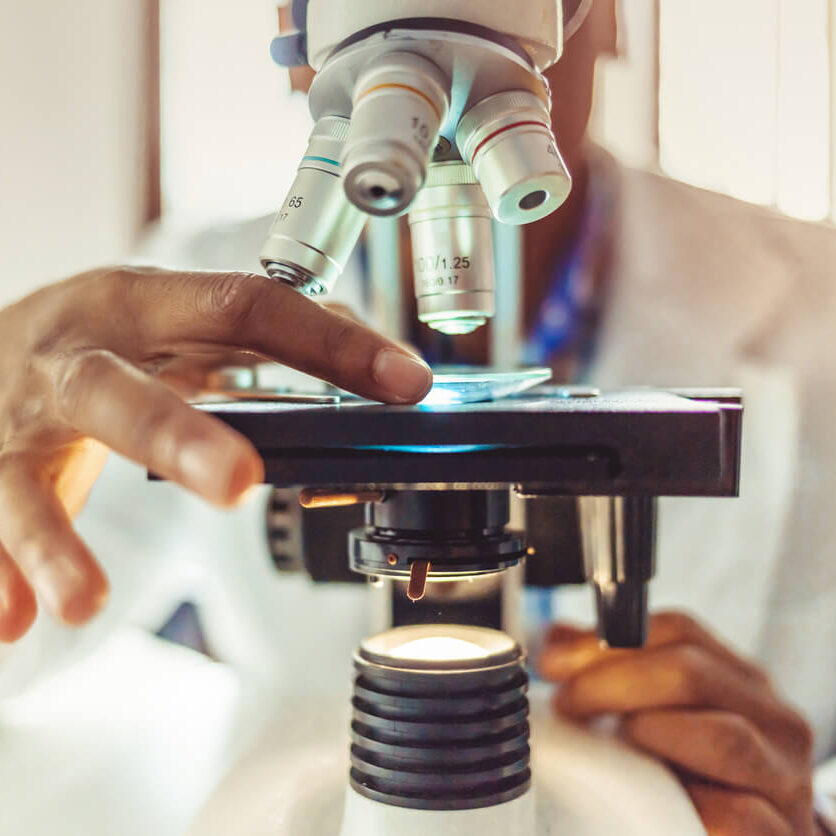Cat and Dog X-Ray, Ultrasound, and Lab Diagnostics in South Loop, Chicago, IL
Our animal hospital is equipped with sophisticated cat and dog digital X-ray and ultrasound technology, along with laboratory machinery to help us better understand your pet’s health. A physical exam limits us to what we can see on the surface. Lab work, X-ray and ultrasound imaging can be crucial to making a definitive diagnosis and providing a more informed treatment plan, because they show us what is going on below the surface. At Partners Animal Hospital South Loop, we use our diagnostic tools on a routine basis, as part of pet wellness plans, senior pet exams, and internal medicine.

How We Use Our In-House Laboratory
Having an in-house testing lab gives our team access to cutting-edge tools that add an extra layer of depth to your pet’s exam.
We can use our testing equipment to run routine tests for wellness exams, which may include:
- Heartworm testing
- CBC (complete blood count)
- Fecal exam
- Blood chemistry
- Tick-borne disease testing
- Urinalysis
These tests offer up valuable information about your pet’s condition, and can alert us to subtle clues of an underlying problem. And if your pet comes to us with an illness and urgently needs care, we can get test results quickly with our in-house tools and provide timely, appropriate treatment.
Additionally, our hospital can send out fluid and tissue samples to external laboratories for comprehensive analysis, if time allows.
When do We Recommend
X-rays for Dogs and Cats?
Partners Animal Hospital South Loop uses digital radiography to assess and diagnose conditions of the heart, lungs, and musculoskeletal system. Many dogs and cats will go most of their life without needing X-rays. But as some pets get older, they might need regular X-ray exams to help us monitor their health. If your pet has a chronic heart condition or respiratory problem, we may recommend X-rays as part of their routine exam.
Other situations for which we might recommend X-rays:
- Breathing difficulties
- Lameness/lack of activity
- A suspected limb deformity
- Injury of the bone and/or joint
- Ingested a foreign body

What Can be Diagnosed with Ultrasound?
Ultrasound uses sound waves to help us view the soft tissue organs and blood vessels, areas of the body that cannot be shown as clearly with X-ray. This non-invasive, pain-free imaging procedure can play a role in diagnosing all kinds of conditions, including:
- Cysts
- Tumors
- Heart problems
- Fluid in the abdomen
- Changes in organ and blood vessel function
Ultrasound also provides a more detailed visual of the size, texture, and blood supply of the organs, which can alert us to underlying disease processes.
Echocardiograms
For echocardiograms, we enlist the expert services of Dr. Wyatt, a board-certified traveling cardiologist who can come to our hospital to perform specialized scans. In addition to echocardiograms, she can perform preanesthetic cardiac evaluations, ECGs, blood pressure assessments, and more. Dr. Wyatt has been practicing medicine since 2014 and has helped patients at countless hospitals throughout Chicagoland. Learn more.
To schedule an appointment with Dr. Wyatt please give us a call today.
